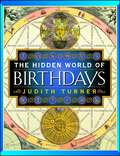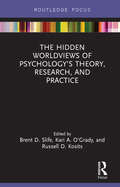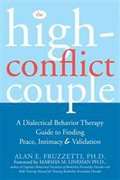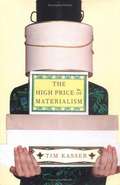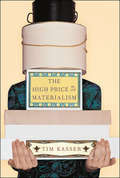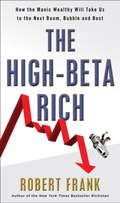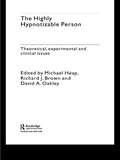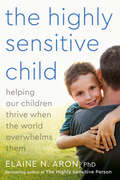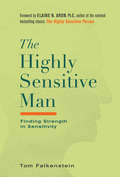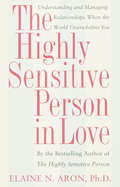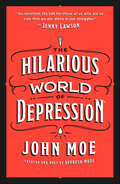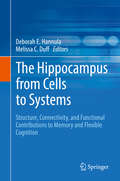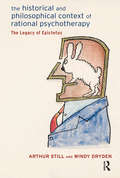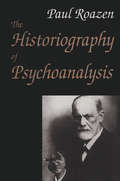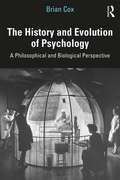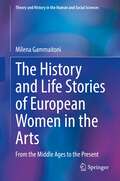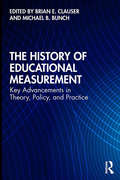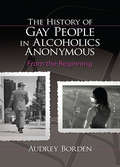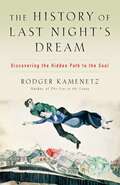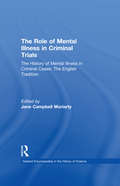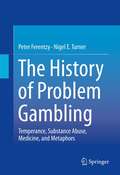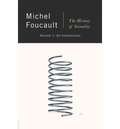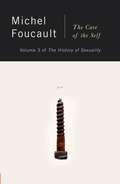- Table View
- List View
The Hidden World of Birthdays
by Judith TurnerUnlock the secrets of your personality with this captivating guide by world-renowned psychic Judith Turner that combines astrology, psychology, and psychic insights to reveal the hidden truths linked to your birth date.Have you ever considered what your birthday truly signifies? It is not just a date on the calendar—it&’s a treasure trove of insights into your identity, personality, and potential. Packed with personalized insights, this enlightening guide offers a fresh perspective on who you are and who you can become. Did you know that you have a specific flower, gem, and fragrance specifically tied to you? Are you aware of your lucky numbers, the name of your guardian angel, or even the ideal day of the week to request a raise? Each person carries unique traits, and every birthday is a reflection of the individual born on that day. With The Hidden World of Birthdays, you&’ll be able to: · Discover the gems and stones that align with your energy, bringing luck, strength, and encouragement. · Learn which colors enhance your charisma and charm, soothing your spirit during life&’s challenges. · Explore the realm of luck with personalized numbers, months, and days of the week that resonate with your life&’s journey. · Uncover the most compatible astrological signs for your relationships and partnerships. · Meet your spiritual guides—your star, angel, guardian angel, and spiritual stone—that enrich your life and guide you on your path. But that&’s not all. Each birthday features an exclusive section called &“Judith&’s Insight,&” offering personalized guidance to help you make informed life choices. These insights not only reveal who you are but also the incredible potential within, illuminating the paths you can take toward personal growth and fulfillment. With The Hidden World of Birthdays, you'll embark on a journey of self-discovery, gaining invaluable insights that can transform your understanding of yourself and your place in the universe. Ready to uncover the hidden truths of your birthday? Keep this book close—it&’s timeless, revealing new insights each time you open it!
The Hidden Worldviews of Psychology’s Theory, Research, and Practice (Advances in Theoretical and Philosophical Psychology)
by Brent D. Slife Kari A. O'Grady Russell D. KositsBy revealing underlying assumptions that influence the field of psychology, The Hidden Worldviews of Psychology’s Theory, Research, and Practice challenges psychologists to reconsider the origins of ideas they may take as psychological truths. Worldviews, or the systems of assumptions that provide a framework for psychological thinking, have great influence on psychological theory, research, and practice. This book attempts to correct assumptions by describing the worldviews that have shaped psychological theory, practice, and research and demonstrating how taking worldviews into account can greatly advance psychology as a whole.
The High Conflict Couple: A Dialectical Behavior Therapy Guide To Finding Peace, Intimacy, And Validation
by Alan E. FruzzettiIf you are part of a "high-conflict" couple, you need to get control of your emotions first, to stop making things worse, and only then work on building a better relationship. The High-Conflict Couple adapts the powerful techniques of dialectical behavior therapy (DBT) into skills you can use to tame out-of-control emotions that flare up in your relationship. Using mindfulness and distress tolerance techniques, you'll learn how to deescalate angry situations before they have a chance to explode into destructive fights. Other approaches will help you disclose your fears, longings, and other vulnerabilities to your partner and validate his or her experiences in return. You'll discover ways to manage problems with negotiation, not conflict, and to find true acceptance and closeness with the person you love the most.
The High Price of Materialism
by Tim KasserTim Kasser offers a scientific explanation of how our contemporary culture of consumerism and materialism affects our everyday happiness and psychological health.
The High Price of Materialism
by Tim KasserA study of how materialism and consumerism undermine our quality of life.In The High Price of Materialism, Tim Kasser offers a scientific explanation of how our contemporary culture of consumerism and materialism affects our everyday happiness and psychological health. Other writers have shown that once we have sufficient food, shelter, and clothing, further material gains do little to improve our well-being. Kasser goes beyond these findings to investigate how people's materialistic desires relate to their well-being. He shows that people whose values center on the accumulation of wealth or material possessions face a greater risk of unhappiness, including anxiety, depression, low self-esteem, and problems with intimacy—regardless of age, income, or culture.Drawing on a decade's worth of empirical data, Kasser examines what happens when we organize our lives around materialistic pursuits. He looks at the effects on our internal experience and interpersonal relationships, as well as on our communities and the world at large. He shows that materialistic values actually undermine our well-being, as they perpetuate feelings of insecurity, weaken the ties that bind us, and make us feel less free. Kasser not only defines the problem but proposes ways we can change ourselves, our families, and society to become less materialistic.
The High-Beta Rich
by Robert Frankhigh-beta rich (hi be'ta rich) 1. a newly discovered personality type of the America upper class prone to wild swings in wealth. 2. the winners (and occasional losers) in an economy that creates wealth from financial markets, asset bubbles and deals. 3. derived from the Wall Street term "high-beta," meaning highly volatile or prone to booms and busts. 4. an elite that's capable of wreaking havoc on communities, jobs, government finances, and the consumer economy. 5. a new Potemkin plutocracy that hides a mountain of debt behind the image of success, and is one crisis away from losing their mansions, private jets and yachts.The rich are not only getting richer, they are becoming more dangerous. Starting in the early 1980s the top one percent broke away from the rest of us to become the most unstable force in the economy. An elite that had once been the flat line on the American income charts - models of financial propriety - suddenly set off on a wild ride of economic binges. Not only do they control more than a third of the country's wealth, their increasing vulnerability to the booms and busts of the stock market wreak havoc on our consumer economy, financial markets, communities, employment opportunities, and government finances. Robert Frank's insightful analysis provides the disturbing big picture of high-beta wealth. His vivid storytelling brings you inside the mortgaged mansions, blown-up balance sheets, repossessed Bentleys and Gulfstreams, and wrecked lives and relationships:* How one couple frittered away a fortune trying to build America's biggest house --90,000 square feet with 23 full bathrooms, a 6,000 square foot master suite with a bed on a rotating platform--only to be forced to put it on the market because "we really need the money". * Repo men who are now the scavengers of the wealthy, picking up private jets, helicopters, yachts and racehorses - the shiny remains of a decade of conspicuous consumption financed with debt, asset bubbles, "liquidity events," and soaring stock prices. * How "big money ruins everything" for communities such as Aspen, Colorado whose over-reliance on the rich created a stratified social scene of velvet ropes and A-lists and crises in employment opportunities, housing, and tax revenues. * Why California's worst budget crisis in history is due in large part to reliance on the volatile incomes of the state's tech tycoons. * The bitter divorce of a couple who just a few years ago made the Forbes 400 list of the richest people, the firing of their enormous household staff of 110, and how one former spouse learned the marvels of shopping at Marshalls, filling your own gas tank, and flying commercial. Robert Frank's stories and analysis brilliantly show that the emergence of the high-beta rich is not just a high-class problem for the rich. High-beta wealth has national consequences: America's dependence on the rich + great volatility among the rich = a more volatile America. Cycles of wealth are now much faster and more extreme. The rich are a new "Potemkin Plutocracy" and the important lessons and consequences are brought to light of day in this engrossing book.From the Hardcover edition.
The Highly Hypnotizable Person: Theoretical, Experimental and Clinical Issues
by Richard J. Brown Michael Heap David A. OakleyIt is commonly known that some individuals are more easily hypnotized than others. What is less clear is why, and what can be learnt from these individual differences for hypnosis as a whole. The Highly Hypnotizable Person is the first book to present an up-to-date, comprehensive overview of what research and evidence there is for the existence and features of highly hypnotisable people. The Highly Hypnotizable Person draws on research findings from cognitive, developmental and clinical psychology and from neuropsychology and neurophysiology. Leading authorities on hypnosis provide a comprehensive account of what is known and understood about this phenomenon and treatment procedure, and in particular, the nature and implications of high susceptibility.
The Highly Sensitive Child: Helping Our Children Thrive When the World Overwhelms Them
by Elaine AronThe bestselling author and psychologist whose books have topped 240,000 copies in print now addresses the trait of “high sensitivity” in children–and offers a breakthrough parenting guidebook for highly sensitive children and their caregivers.<P> With the publication of The Highly Sensitive Person, Elaine Aron became the first person to identify the inborn trait of “high sensitivity” and to show how it affects the lives of those who possess it. Up to 20 percent of the population is born highly sensitive, and now in The Highly Sensitive Child, Aron shifts her focus to highly sensitive children, who share the same characteristics as highly sensitive adults and thus face unique challenges as they grow up. <P> Rooted in Aron’s years of experience as a psychotherapist and her original research on child temperament, The Highly Sensitive Child shows how HSCs are born deeply reflective, sensitive to the subtle, and easily overwhelmed. These qualities can make for smart, conscientious, creative children, but with the wrong parenting or schooling, they can become unusually shy or timid, or begin acting out. Few parents and teachers understand where this behavior comes from–and as a result, HSCs are often mislabeled as overly inhibited, fearful, or “fussy,”or classified as “problem children” (and in some cases, misdiagnosed with disorders such as Attention Deficit Disorder). But raised with proper understanding and care, HSCs are no more prone to these problems than nonsensitive children and can grow up to be happy, healthy, well-adjusted adults. <P> In this pioneering work, parents will find helpful self-tests and case studies to help them understand their HSC, along with thorough advice on:<P> • The challenges of raising an highly sensitive child<P> • The four keys to successfully parenting an HSC<P> • How to soothe highly sensitive infants<P> • Helping sensitive children survive in a not-so-sensitive world<P> • Making school and friendships enjoyable<P> With chapters addressing the needs of specific age groups, from newborns through teens, The Highly Sensitive Child delivers warmhearted, timely information for parents, teachers, and the sensitive children in their lives.
The Highly Sensitive Man: How Mastering Natural Insticts, Ethics, and Empathy Can Enrich Men's Lives and the Lives of Those Who Love Them
by Tom FalkensteinBestselling classic and global phenomenon The Highly Sensitive Person has helped millions of people around the world. Now Elaine Aron&’s colleague offers help and hope for men with high sensitivity and the unique problems they face. Highly sensitive people think deeply, empathize instinctively, and tend to behave in an ethical way that benefits everyone. Today, with the negative effects of &“toxic masculinity&” and aggressive behavior in evidence all around us, we need highly sensitive people—especially men—more than ever. Yet for men in particular, being highly sensitive brings distinct challenges, such as gender stereotypes that portray them as too emotional or not &“manly&” enough. Cognitive behavioral psychotherapist Tom Falkenstein offers the first psychological guide that specifically addresses highly sensitive men and those who care about them, and explores the unique advantages and obstacles they face. Drawing from his training with pioneer in the field Dr. Elaine Aron, and his own groundbreaking work, Falkenstein incorporates the most up-to-date research on high sensitivity—what it is and isn&’t—how it relates to male identity, and provides one-of-a-kind advice and practical tools. Including an illuminating conversation with Dr. Aron, The Highly Sensitive Man is an invaluable book that will help redefine masculinity and reveal how high sensitivity can enrich men&’s lives, their communities, and the lives of those who love them. &“A book that cracks open the conversation about how men can blend their strength, sensitivity and unique gifts into a more modern and whole definition of what it is to be a man.&” —Alanis Morissette, singer, songwriter, activist &“Rooted in the rigorous science of sensory processing sensitivity . . . provides numerous ways we can grow into our own skins.&”—Tracy Cooper, PhD, author of Thrill!: The High Sensation Seeking Highly Sensitive Person
The Highly Sensitive Person in Love: Understanding and Managing Relationships When the World Overwhelms You
by Elaine N. AronDo you fall in love hard, but fear intimacy? Are you sick of being told that you are "too sensitive"? Do you struggle to respect a less-sensitive partner? Or have you given up on love, afraid of being too sensitive or shy to endure its wounds?Statistics show that 50 percent of what determines divorce is genetic temperament. And, if you are one of the 20 percent of people who are born highly sensitive, the risk of an unhappy relationship is especially high. Your finely tuned nervous system, which picks up on subtleties and reflects deeply, would be a romantic asset if both you and your partner understood you better. But without that understanding, your sensitivity is likely to be making your close relationships painful and complicated.Based on Elaine N. Aron's groundbreaking research on temperament and intimacy, The Highly Sensitive Person in Love offers practical help for highly sensitive people seeking happier, healthier romantic relationships. From low-stress fighting to sensitive sexuality, the book offers a wealth of practical advice on making the most of all personality combinations. Complete with illuminating self-tests and the results of the first survey ever done on sex and temperament, The Highly Sensitive Person in Love will help you discover a better way of living and loving.From the Trade Paperback edition.
The Hilarious World of Depression
by John MoeOne of Today's Ten Best Inspirational Books, 2020By the creator and host of the acclaimed mental health podcast Depresh Mode with John Moe"[A] path to deeper understanding and openness, by way of laughter in the dark" ―The New York Times Book Review"Filled with heart, humor and hope." ―People"A funny, honest book." ―Neil Gaiman"Candid and funny and intimate." ―Susan Orlean For years John Moe, critically-acclaimed public radio personality and host of The Hilarious World of Depression podcast, struggled with depression; it plagued his family and claimed the life of his brother in 2007. As Moe came to terms with his own illness, he began to see similar patterns of behavior and coping mechanisms surfacing in conversations with others, including high-profile comedians who’d struggled with the disease. Moe saw that there was tremendous comfort and community in open dialogue about these shared experiences and that humor had a unique power. Thus was born the podcast The Hilarious World of Depression.Inspired by the immediate success of the podcast, Moe has written a remarkable investigation of the disease, part memoir of his own journey, part treasure trove of laugh-out-loud stories and insights drawn from years of interviews with some of the most brilliant minds facing similar challenges. Throughout the course of this powerful narrative, depression’s universal themes come to light, among them, struggles with identity, lack of understanding of the symptoms, the challenges of work-life, self-medicating, the fallout of the disease in the lives of our loved ones, the tragedy of suicide, and the hereditary aspects of the disease.The Hilarious World of Depression illuminates depression in an entirely fresh and inspiring way.
The Hippocampus from Cells to Systems
by Deborah E. Hannula Melissa C. DuffThe hippocampus has long been considered a critical substrate in the neurobiology, neuropsychology, and cognitive neuroscience of memory. Over the past few decades, a number of ground-breaking theoretical and methodological advances have radically enhanced our understanding of the structure and function of the hippocampus and revolutionized the neuroscientific study of memory. Cutting across disciplines and approaches, these advances offer novel insights into the molecular and cellular structure and physiology of the hippocampus, the role of hippocampus in the formation, (re)consolidation, enhancement, and retrieval of memory across time and development, and permit investigators to address questions about how the hippocampus interacts, functionally and anatomically, with other neural systems in service of memory. In addition, recent investigations also suggest that the mechanistic properties and functional processing features of the hippocampus permit broader contributions to cognition, beyond memory, to the domains of attention, decision-making, language, social cognition, and a variety of other capacities that are critical for flexible cognition and behavior. These advances have profound implications for the neurobiology and cognitive neuroscience of hippocampus dependent cognition and for the numerous psychiatric and neurological diseases and disorders for which hippocampal pathology is a hallmark such as Alzheimer's disease and schizophrenia. The goal of this book is to bring together in a single source an integrated review of these advances providing state of the art treatment on the structure and function of the hippocampus. Contributors will examine the hippocampus from a variety of levels (from cells to systems) using a wide range of methods (from neurobiological approaches in non-human animals to neuroimaging and neuropsychological work in humans).
The Historical and Philosophical Context of Rational Psychotherapy: The Legacy of Epictetus
by Windy Dryden Arthur StillThis book brings together the papers written by the authors over the last fifteen years on the historical and philosophical foundations of Albert Ellis' Rational Psychotherapy (later Rational Emotive Behavior Therapy, REBT) and its relationship to Stoicism, especially the later practical form represented by Epictetus. It goes beneath the well known similarities between Stoic "spiritual exercises" and modern psychotherapy, to look at the cause of these similarities. These lie in the conceptual continuities that connect the Stoics and other ancient philosophies with the modern cultural framework underlying psychotherapy.
The Historiography of Psychoanalysis
by Paul RoazenToday Sigmund Freud's legacy seems as hotly contested as ever. He continues to attract fanaticism of one kind or another. If Freud might be disappointed at the failure of his successors to confirm many of his so-called discoveries he would be gratified by the transforming impact of his ideas in contemporary moral and ethical thinking. To move from the history of psychoanalysis onto the more neutral ground of scholarly inquiry is not a simple task. There is still little effort to study Freud and his followers within the context of intellectual history. Yet in an era when psychiatry appears to be going in a different direction from that charted by Freud, his basic point of view still attracts newcomers in areas of the world relatively untouched by psychoanalytic influence in the past. It is all the more important to clarify the strengths and the limitations of Freud's approach.Roazen begins by delving into the personality of Freud, and reassesses his own earlier volume, Freud and His Followers. He then examines "Freud Studies" in the nature of Freudian appraisals and patients. He examines a succession of letters between Freud and Silberstein; Freud and Jones; Anna Freud and Eva Rosenfeld; James Strachey and Rupert Brooke. Roazen includes a series of interviews with such personages as Michael Balint, Philip Sarasin, Donald W. Winnicott, and Franz Jung. He explores curious relationships concerning Lou Andreas-Salome, Tola Rank, and Felix Deutsch, and deals with biographies of Freud's predecessors, Charcot and Breuer, and contemporaries including Menninger, Erikson, Helene Deutsch, and a number of followers. Freud's national reception in such countries as Russia, America, France, among others is examined, and Roazen surveys the literature relating to the history of psychoanalysis. Finally, he brings to light new documents offering fresh interpretations and valuable bits of new historical evidence.This brilliantly constructed book explores the vagaries of Freud's impact over the twentieth century, including current controversial issues related to placing Freud and his theories within the historiography of psychoanalysis. It will be of interest to psychoanalysts, intellectual historians, and those interested in the history of ideas.
The History and Evolution of Psychology: A Philosophical and Biological Perspective
by Brian D. CoxThis book discusses key figures in history in the context of their time, takes students on a carefully-formulated, chronological journey through the build-up of psychology from ancient times to the present, and seeks to draw students into the way science is done, rather than merely presenting them with historical fact. Students will learn not only the ‘what’, but the ‘why’ of the history of psychology and will acquire the necessary background historical material to fully understand those concepts. Organized around a series of paradigms—a shift from scholasticism to rationalism or empiricism, and a shift from idealism to materialism—the book seeks to portray psychology as an on-going, evolving process, rather than a theory.
The History and Future of Correctional Psychology
by Marguerite Ternes Philip R. Magaletta Marc PatryThis edited volume provides a comprehensive overview of correctional psychology, considering the history and future of the practice. With contributions from expert leaders in the field of correctional psychology – the application of psychological evaluation, treatment, and management of offenders in jails, prisons, and other correctional settings – the early history is presented through a series of brief biographical sketches of the field’s early pioneers. Moving forward, the period of growth and development of key concepts that advanced and matured the field is presented. Finally, directions that remain relevant as the future of correctional psychology unfolds are presented. Ideal for correctional psychology practitioners, students of correctional and forensic psychology, and those interested in the history of psychology, this unique volume traces the ongoing development of a crucial area of psychological practice.
The History and Life Stories of European Women in the Arts: From the Middle Ages to the Present (Theory and History in the Human and Social Sciences)
by Milena GammaitoniOffering historical identity fortified by the presence of women belonging to the various areas of creative and intellectual life, this book allows readers to understand greater contexts of their identity. The history of female artists is an indicator of how social identity was erased from the historiography which asserted itself in nineteenth-century Europe. Analysis of the biographical pathways traced here reveals how women in the Middle Ages and beyond have been active protagonists of the arts, received reviews, as well as had an authoritative role as the esteemed and attentive witnesses of the society around them.Reconstruction of social relationships, intellectual and creative production as well as of the life stories of some of Europe’s most important female artists, foregrounds this omission and highlights their extraordinary nature.The different stories contained in this book narrate the lives and works of Hildegard von Bingen, Francesca Caccini, Mary Wollstonecraft, George Sand, Lou Andreas Salomé and Elke Mascha Blankenburg.By reinforcing the awareness of social and historical origins, the informed reader is better equipped to tackle their futures and build up their personalities.
The History of Educational Measurement: Key Advancements in Theory, Policy, and Practice
by Brian E. ClauserThe History of Educational Measurement collects essays on the most important topics in educational testing, measurement, and psychometrics. Authored by the field’s top scholars, this book offers unique historical viewpoints, from origins to modern applications, of formal testing programs and mental measurement theories. Topics as varied as large-scale testing, validity, item-response theory, federal involvement, and notable assessment controversies complete a survey of the field’s greatest challenges and most important achievements. Graduate students, researchers, industry professionals, and other stakeholders will find this volume relevant for years to come.
The History of Educational Measurement: Key Advancements in Theory, Policy, and Practice
by Brian E. ClauserThe History of Educational Measurement collects essays on the most important topics in educational testing, measurement, and psychometrics. Authored by the field’s top scholars, this book offers unique historical viewpoints, from origins to modern applications, of formal testing programs and mental measurement theories. Topics as varied as large-scale testing, validity, item-response theory, federal involvement, and notable assessment controversies complete a survey of the field’s greatest challenges and most important achievements. Graduate students, researchers, industry professionals, and other stakeholders will find this volume relevant for years to come.
The History of Gay People in Alcoholics Anonymous: From the Beginning
by Audrey BordenThe History of Gay People in Alcoholics Anonymous documents and honors the ways thousands of LGBT people have carried Alcoholics Anonymous' message. This illuminating chronicle includes interviews and documents that detail the compelling history, recovery, and wisdom of gay people in AA. The book examines the challenges AA faced as the fellowship endeavored to become a more inclusive and cohesive community. The first-person accounts narrate the important work of influential gay and straight AA members that led key events in AA’s history. The author includes material on the steps and traditions of AA, and on becoming an ally to LGBT people on the road to recovery.Topics in The History of Gay People in Alcoholics Anonymous include: the gay origins of AA’s Third Tradition a comparison of treatments for alcoholism and homosexuality compelling portraits of sober gay life in the 1950s and 1960s the debate in AA over meetings for gay alcoholics interviews with members and co-founders of the first gay AA meetings the history of the first gay AA/Al-Anon conference interviews with pioneering gay addiction professionals the history of AA pamphlet “AA and the Gay/Lesbian Alcoholic” Alcoholics Together, and why a parallel AA organization for gay alcoholics formed in southern California strategies AA’s gay members developed to make their meetings simultaneously safe and public—and why some of them are still necessary today much more The History of Gay People in Alcoholics Anonymous is an enlightening book for members of the LGBT and heterosexual recovering community, alcoholism and addiction professionals, as well as physicians, counselors, psychiatrists, psychologists, social workers, clergy, historians, sociologists, educators, students, and anyone interested in learning more about AA or this aspect of the community’s history.
The History of Last Night's Dream: Discovering the Hidden Path to the Soul
by Rodger KamenetzOur Dreams Will Never Be the Same AgainInternational bestselling author Rodger Kamenetz believes it is not too late to reclaim the lost power of our nightly visions. He fearlessly delves into this mysterious inner realm and shows us that dreams are not only intensely meaningful, but hold essential truths about who we are. In the end, each of us has the choice to embark on this illuminating path to the soul.
The History of Mental Illness in Criminal Cases: The Role of Mental Illness in Criminal Trials (Garland Encyclopedias in the History of Science)
by Jane Campbell MoriartyFirst Published in 2002. Routledge is an imprint of Taylor & Francis, an informa company.
The History of Problem Gambling
by Nigel E. Turner Peter FerentzyThis book documents the history of ideas about problem gambling and its link to addictive disorders. The book uses a combination of literature review and conceptual and linguistic analysis to explore the way ideas about problem gambling gave changed over time. It examines the religious, socio-cultural, and medical influences on the development of the concept of problem gambling as a disease, along with the ways in which such ideas were influenced by attitudes about substance abuse. The history of mental illness, notably as it pertains to themes such as loss of control over behavior, is also addressed. The book ends with a discussion of the current status and future prospects, with an eye to which ideas about problem gambling and addictions seem most promising and which should perhaps be left behind.
The History of Sexuality, Vol. 1: An Introduction
by Michel FoucaultDiscusses the social construction of sexuality.
The History of Sexuality, Vol. 3: The Care of the Self
by Michel Foucault Robert HurleyThe Care of the Self is the third and possibly final volume of Michel Foucault's widely acclaimed examination of "the experience of sexuality in Western society." Foucault takes us into the first two centuries of our own era, into the Golden Age of Rome, to reveal a subtle but decisive break from the classical Greek vision of sexual pleasure. He skillfully explores the whole corpus of moral reflection among philosophers (Plutarch, Epictetus, Marcus Aurelius, Seneca) and physicians of the era, and uncovers an increasing mistrust of pleasure and growing anxiety over sexual activity and its consequences.
